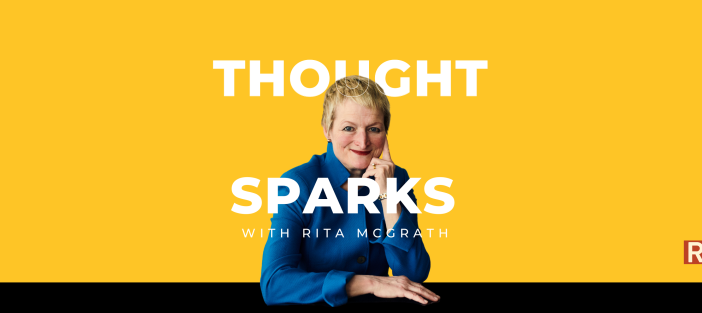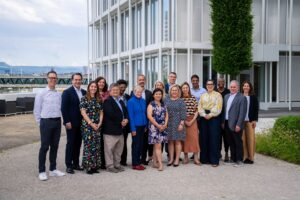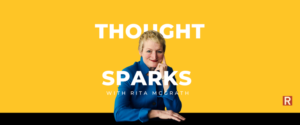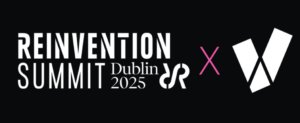
There is no shortage of Fear, Uncertainty and Doubt (FUD) to go around. As Futurist Amy Webb points out in her 2024 SXSW talk, we’re in the midst of a “supercycle” – one of those sometimes-decades-long turning points in the evolution of capitalism when taken for granted assumptions about just about everything change.
A big reason for that is the rise of “general purpose technologies” that have an impact across a range of possible uses (by the way, that’s the GPT in ChatGPT). A GPT, like electricity, is different from more specialized technologies because they can have a wide-ranging impact. Electricity changed how we made things, how we lived, how we socialized and of course how we worked. It took decades, but eventually even the idea of having a “chief electricity officer” came to look ridiculous as it made its way into every corner of our lives. Arrtificial intelligence, ubiquitous sensors, and extreme advances in biotechnology have the potential to ave an equally far-ranging impact on our lives. While it’s easy to freak out about the potential dark sides of these powerful new technologies, it’s also worthwhile to realize that they also open up exciting new possibilities. It’s also true that not every innovation is beneficial, and we’ve figured out how to address those issues as well.
For instance, Jonathan Haidt’s 2024 book The Anxious Generation makes the case that phone-based childhoods are depriving kids of vital social connections, creating anxiety and elevating social problems. One suggestion – get phones out of schools and limit the age at which kids can get access to smart phone applications. While causal relationships between cell phone usage and these social consequences are the subject of controversy, states and entire countries believe the issue needs policy attention.
In the last few years, we’ve had plenty of examples of ingenuity at work. Lightning-fast development and deployment of the COVID-19 vaccine stands as an astonishing scientific achievement, connected to a Nobel prize. After crushing setbacks during COVID, the Philippines and other Southeast Asian countries have done a magnificent job reducing poverty. Large organizations scandalously basically bribed pharmacy benefit managers to allow the “free flow of opioid drugs,” creating a massive crisis in which tens of thousands of Americans overdosed and died. Well, according to the Centers for Disease Control, we may finally be seeing a drop in drug overdoses – a very welcome development. We’re also seeing a drop in teen birth rates since 2000, another very welcome development.
My point is this – bad news and dramatic events make headlines, but don’t tell the whole story of ingenious solutions hiding in plain sight. One of my go-to resources for finding examples of human ingenuity in action is The Progress Network. There are 100 or so of us, dedicated to the purpose of pointing the world in a more positive direction. To watch my interview with founder David Bornstein, author of the “fixes” column for the New York Times which talks about the network, click here.
Events
Human Future of Work
HR leaders are being stretched thin, between the aftermath of the COVID-19 pandemic and the ensuing RTO/WFH conflicts, rancorous debates about diversity, equity and inclusion at work and the pending massive impact of artificial intelligence in the workplace. After hearing from countless CHRO’s about these issues, I was delighted to participate in founding the Human Future of Work initiative, alongside my Columbia colleague Hitendra Wadhwa, my Valize colleagues Scott Wolfson and Kes Sampanthar, and our partners Moses Berkowitz and Adam Brown at Emeritus, and Frank Congiu of Randstadt who has earned everybody’s accolades for hosting the most memorable dinners of 2024.
Since May, we’ve convened 100 + CHRO’s in daylong workshop sessions and workstream groups meeting biweekly to tackle some of the issues we face when considering the future of work. It’s no small feat for these leaders to dedicate hours every week to pushing the needle on how we consider leadership and organizational design and systems.

Leading Strategic Growth and Change
This year, we welcomed 130 top executives across 4 sessions of Leading Strategic Growth and Change, my weeklong in-person Columbia Executive Education course. These participants came from across industries and the world, with personal cases about strategic issues they’re facing in their companies: succession planning, AI integration, and bringing new products to market, to name a few.
Silicon Guild
A highlight of 2024 was regular collaboration with the Silicon Guild, a group of 60-odd authors and thought leaders across business, economics, psychology, and behavior. Whether it was Guild founder Peter Sims’ PowerShift conference, or the Mind Matters mental health webinar series, or a series of new book releases, I was delighted to encounter the Silicon Guild across all areas of research and thought leadership.
Practitioners: Genentech + Novartis
2024 brought great collaborations with corporate practitioners Genentech and Novartis, who are examples of “bright spots” on the leadership development horizon. At a time when many large companies have all but abandoned internal development, programs like Genentech’s custom program with Columbia, upskilling 35 very senior leaders; and Novartis’ Culture Leadership Advisory Board, which I was honored to take part in, are examples of forward-thinking firms investing in their best resource: their people.

Big AI @ MIT
There’s no way to talk about 2024 without talking about the meteoric rise of Generative AI. I was delighted to be a panelist at BIG.AI@MIT , a collaboration between the MIT Initiative on the Digital Economy, Thinkers50, and Accenture, with contributions from scholars and practitioners from Salesforce, Corning, Stanford, and more. We discussed how AI can help us conduct NFL-style “film reviews” in other aspects of our lives, analyze texts with multiple authors to parse out who contributed what, and cut through corporate silos.
Standout Thought Sparks
An estimated $740.3 billion was spent on programmatic advertising in 2024. This all well and good, but amid pervasive ad-blocking, fraudulent clicks, and imprecise micro-targeting, the whole Internet advertising industry is a bubble waiting to burst.
By 2030, American women are expected to control $30 trillion that baby boomers currently possess. This massive transfer of wealth to women will affect the very assumptions underpinning the financial advisory business.
When strict return-to-office mandates are cropping up in companies across the world, we have to take a serious look at what our incentives systems actually reward.
The Ozempic inflection point is hitting the $3.9 billion weight loss industry like a freight train. Case in point? Oprah stepping down as a Weight Watchers spokesperson, insinuating their product doesn’t work.
In the wake of the US presidential election, the social media platform Bluesky saw a seismic increase in users. (And I’m in that number!) But is it really the antidote people have been hoping for?

In the News
In the past 30 years, we’ve transitioned from a world of isolated complication to one of interconnected complexity. This primer from Forbes walks through two case studies – Nokia and Microsoft – who navigated this transition.
The 2015 Kraft Heinz megamerger sounded like a runaway success on paper, but up against changing consumer tastes and cost-cutting private equity practices, it fell short. More reflections, almost a decade on, in CNBC.
Classical management theory underlies almost every aspect of our business practices, from online ordering to supply chain management. But many people misunderstand Frederick Taylor’s early theory, when it can still inform our businesses today.
The conversation around AI is reminiscent of the conversations about the dot.com boom, or the direct-to-consumer surge. Here’s what we can learn from those booms to use AI strategically.

Slowing down is enormously important to seeing around corners, and other lessons from the inflection point of the Covid-19 pandemic.
Clayton Christensen introduced disruptive innovation almost 30 years ago, sparking a whole wave of entrepreneurship. How does it bear up today, among a sea of big tech startups?
Valize Advisory
Management consulting is at an inflection point. In the face of widespread globalization and digital transformation, and the uncertainty that comes along with that, businesses need to build the capability to navigate a changing landscape. We’ve recently expanded our Advisory offerings at Valize to accommodate this shift.
If your organization would benefit from processes like Early Warnings Systems, or Scenario Explanation Labs, be sure to be in touch!
Upcoming Events
Reinvention Summit
The past five years have brought constant disruptions in economic, geopolitical, and technological spheres. So what are innovators to do? Enter The Reinvention Summit. Our team at Valize, alongside Aidan McCullen and Nadya Zhexembayeva are convening innovators from across the world in Dublin on April 28-May 1, for a series of workshops, 1:1 sessions, and keynotes about how to spark reinvention at a time when we need it most.
Early bird specials are available if you register before the end of the year – learn more on our website!

Columbia Executive Education
I’ll be teaching two sessions of Leading Strategic Growth and Change from March 17-21 and June 23-27 at Columbia Business School. If you’re looking to drive real organizational transformation amid the uncertainty that 2025 is sure to bring, be sure to save your spot in the course.
As we set up our OOO emails and get those last few reports in under the wire, I’d like to wish you all a happy and healthy holiday season with your loved ones, and all the best for 2025!
